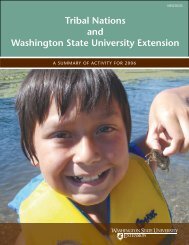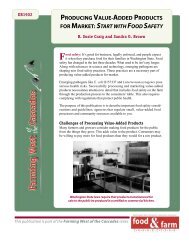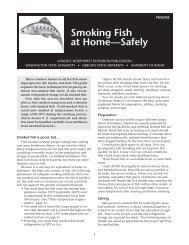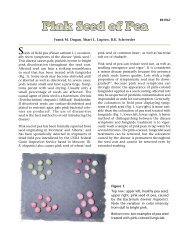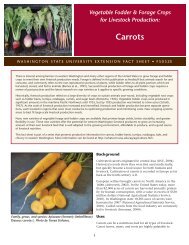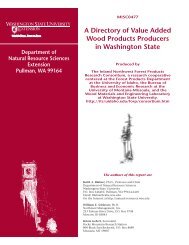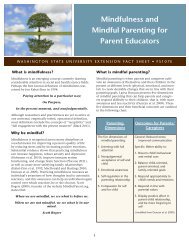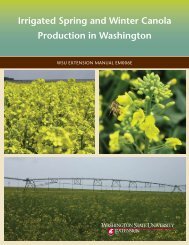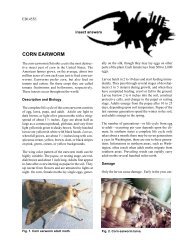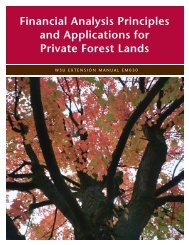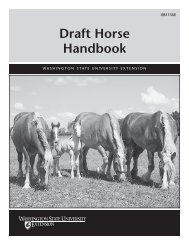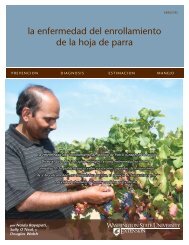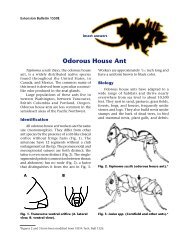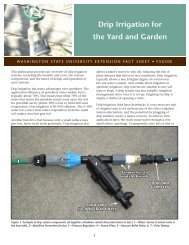Em4885 irrigation management practices to protect ground water
Em4885 irrigation management practices to protect ground water
Em4885 irrigation management practices to protect ground water
Create successful ePaper yourself
Turn your PDF publications into a flip-book with our unique Google optimized e-Paper software.
4 CHAPTER<br />
SECTION 1 - OVERALL GOOD PRACTICES<br />
IP 4.01.01 - Assess the Risk of Contamination of Ground and Surface<br />
Waters due <strong>to</strong> Chemical Leaching and Runoff<br />
Objective<br />
Use chemical formulations that are minimally susceptible <strong>to</strong> leaching and runoff<br />
considering the soil they are used on.<br />
Description<br />
Some combinations of soil and chemical are more susceptible <strong>to</strong> leaching and runoff than<br />
others. The Washing<strong>to</strong>n State Water Quality Guide contains ratings of leaching and runoff<br />
potential for chemicals. It also provides a method for determining potential leaching and<br />
runoff for specific soils. If a soil/chemical combination is found <strong>to</strong> be susceptible <strong>to</strong><br />
leaching or erosion, either another combination should be sought or special care taken<br />
in the use of the material.<br />
Particular fac<strong>to</strong>rs that affect potential contamination of <strong>ground</strong> <strong>water</strong> are listed in WSU<br />
Cooperative Extension bulletin EB1543, Pesticide Movement in Soils-Ground Water<br />
Protection, (published Oc<strong>to</strong>ber 1989) as:<br />
1. Rate and method of application. Excessive and improper applications must<br />
be avoided.<br />
2. Pesticide persistence and mobility. Some chemicals will persist longer than others.<br />
Some are more mobile then others, either because of their solubility or their<br />
adsorptive ability.<br />
3. Soil permeability and organic matter content. More permeable soils are susceptible<br />
<strong>to</strong> leaching of nutrients and chemicals. Organics tend <strong>to</strong> tie up chemicals and<br />
prevent them from leaching.<br />
4. Frequency and timing of rainfall and <strong>irrigation</strong>s. Unexpected rainfall or excessive<br />
<strong>irrigation</strong>s can cause excessive deep percolation, surface runoff, or both. These are<br />
prime transport mechanisms for moving chemicals <strong>to</strong> surface and <strong>ground</strong><br />
<strong>water</strong> bodies.<br />
5. Depth <strong>to</strong> <strong>ground</strong> <strong>water</strong>. The deeper the aquifer, the more chance that the pesticide will<br />
either convert <strong>to</strong> a less harmful form or be tied up by organics or clay soils layers.<br />
82



